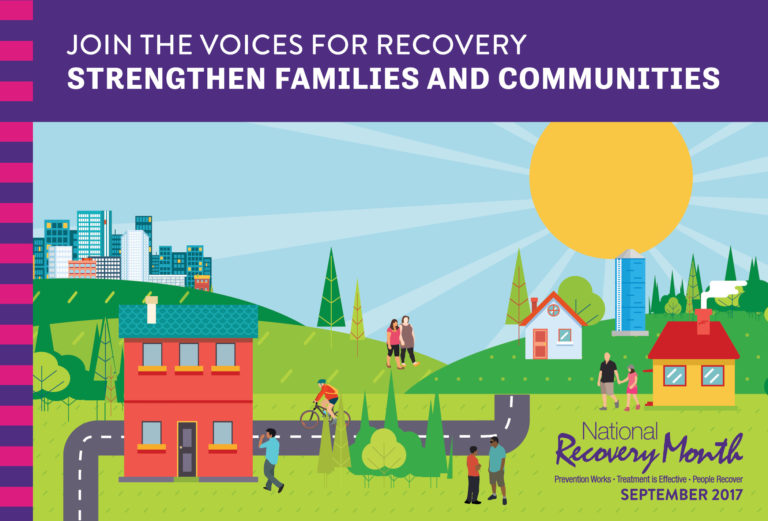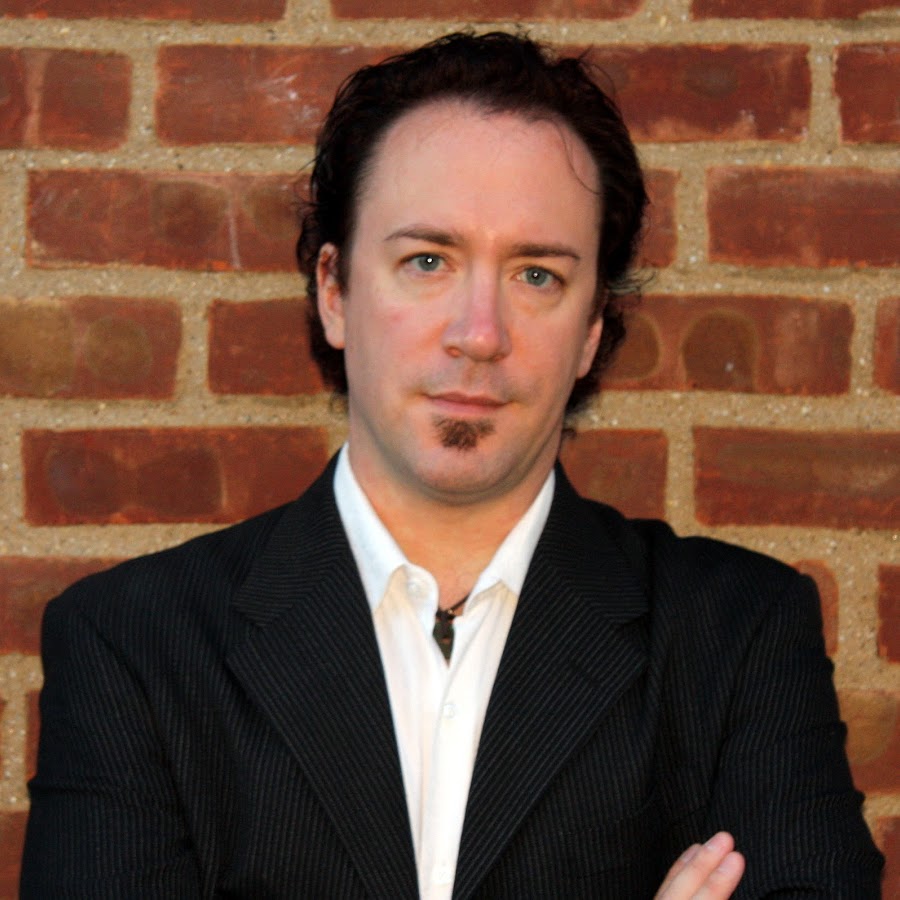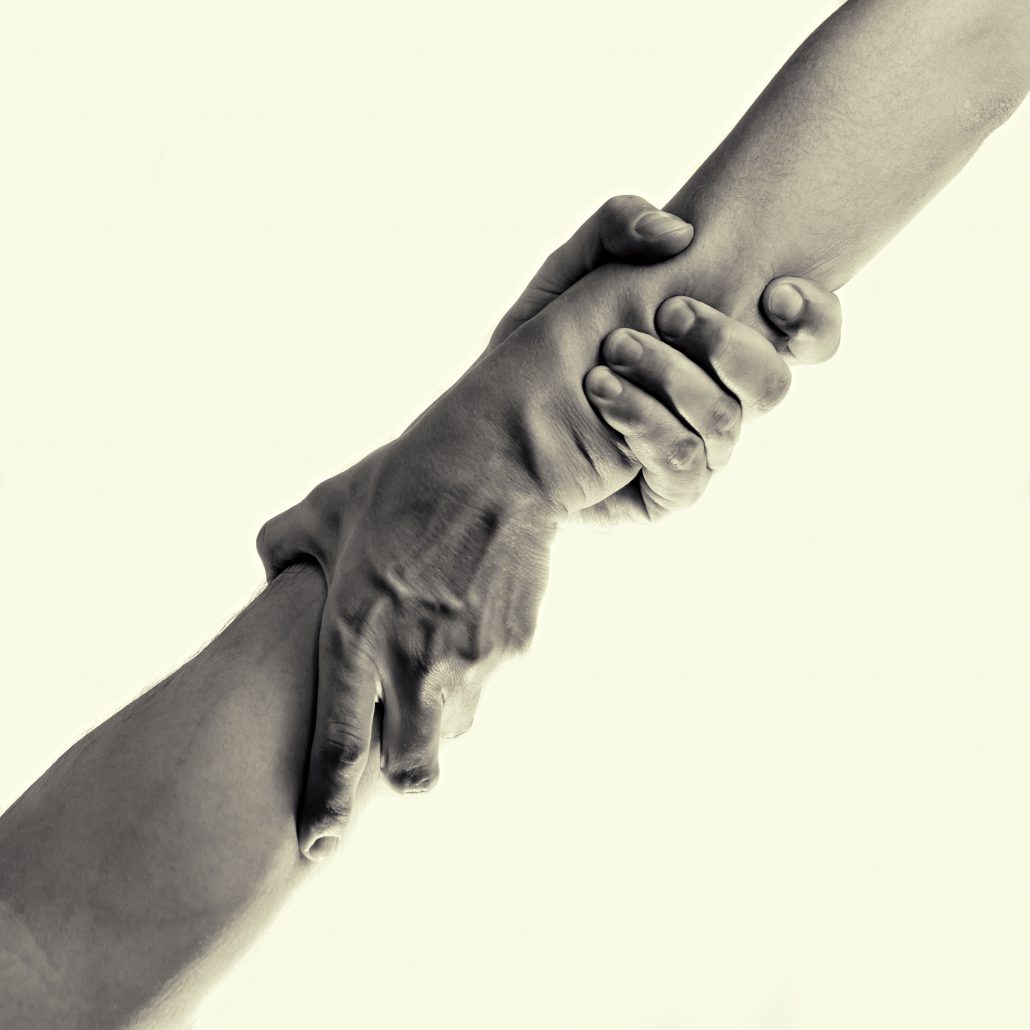by Sher Delva | Aug 18, 2017 | Addiction, Drug Abuse, Family, Mental Health, Mood Disorders

We are pleased to announce Dug and Heidi McGuirk of Palm Healthcare as special keynote speakers for this year’s Broward Recovery Month Event!
The Broward Recovery Event will honor special individuals in the community who are powerhouses for the recovery community.
 Dug McGuirk is an accomplished entrepreneur and inspirational speaker. As co-founder of Revolutionary Health, Dug is committed to transforming lives. Dug McGuirk is the VP of Training and Development for Palm Healthcare Company where he regularly teaches a variety of transformative classes.
Dug McGuirk is an accomplished entrepreneur and inspirational speaker. As co-founder of Revolutionary Health, Dug is committed to transforming lives. Dug McGuirk is the VP of Training and Development for Palm Healthcare Company where he regularly teaches a variety of transformative classes.
 Heidi McGuirk is an author, co-founder of Revolutionary Health, Master Relationship Coach and addiction professional who teaches several weekly classes at Palm Healthcare.She is the creator and CEO of Love Coach Heidi where she helps recovering co-dependent women learn how to love themselves first.
Heidi McGuirk is an author, co-founder of Revolutionary Health, Master Relationship Coach and addiction professional who teaches several weekly classes at Palm Healthcare.She is the creator and CEO of Love Coach Heidi where she helps recovering co-dependent women learn how to love themselves first.
Dug and Heidi both created an amazing family program for the families of addicted loved ones. The Family Program helps families navigate addiction and understand how to help their loved one instead of hurting them.
We would like to offer you the FREE GIFT of a checklist to help decipher if you are helping or hurting a loved one who is struggling with addiction.
Click for FREE GIFT
We encourage all to come out and support them in this year’s Broward Recovery Month event. Even if you are not familiar with the incredible work Dug and Heidi McGuirk do, you will gain so much from attending the event and hearing their words of inspiration and hope.
Here are the details:
Broward National Recovery Month Event:
When: September 9th from 11-3
Where: The War Memorial Museum
800 NE 8th St, Fort Lauderdale, FL 33304
What: Join special keynote speakers Dug and Heidi McGuirk for FREE food, fun, and inspiration.
This year’s theme for Recovery Month 2017 is Join the Voices for Recovery: Strengthen Families and Communities.
September marks the 27th anniversary of National Recovery Month. The purpose of National Recovery Month is to increase awareness and understanding of mental and substance use disorder and celebrate people who DO recover.
The 2017 theme highlights the value of family and community support. Recovery Month invites individuals in recovery and their family members to share their personal stories and successes to inspire and encourage others.
Broward Recovery Month will be an exciting, INSPIRING event for all to attend. You can make a difference by joining in the Recovery Month Effort.
Support is crucial when it comes to addiction recovery.
Events that support recovery help encourage and inspire those struggling with their addiction, as well as give an outlet to those who have had amazing success in recovery. These events were created to join the recovery community together and celebrate those who have achieved success in their journey.
Broward’s Recovery Month Celebration “honors outstanding individuals who have made significant contributions to helping people in our county remain sober.”
Overall, National Recovery Month helps instill a sense of belonging, safety, and security to the recovery community. This year, we encourage you to participate in events in your community that support addiction recovery. There are events happening nationwide for you to attend.
Whether you are new to recovery or have years of sobriety under your belt, everyone can benefit from attending major events like this. Families of addicted loved ones are strongly encouraged to attend because this year’s National Recovery Month specifically focuses on strengthening families. Families know more than anyone that addiction does not affect just the addict, it affects everyone around them too.
Millions of lives have been transformed through recovery. Often, these successes go unnoticed. Recovery Month is an excellent way for everyone to celebrate these accomplishments.
Addiction affects everyone, not just the addict. Therefore, if you or someone you know is currently struggling, please reach out. We want to help. Do not wait. Please call toll-free now.
CALL NOW 1-888-922-5398
by staff | Jul 7, 2017 | Addiction, Addiction Stigma, Addiction Treatment, Detox, Family, Inpatient Treatment, Outpatient Treatment, Parenting

Every member of the Palm Healthcare Family, from the administrators behind the scenes to those on the front lines along with a dedicated clinical team, are committed to helping support and educate anyone looking for help when struggling with a substance use disorder. Given the recent issues facing the nation, including the addiction crisis and the concern for ensuring safe and effective treatment, our clinical staff has chosen to speak to everyone out there looking for answers in their own words, hoping to shine new light on some difficult conversations.
To learn more about how to handle the difficult emotions and situations parents and family members face with an addicted loved one, download our FREE e-book
“What is the Difference Between Helping and Hurting”
DOWNLOAD FREE E-BOOK
Here we have some crucial information from Janice Hemmer, Tischler LCSW, ACSW, CAC who is the Senior Program Director of Palm Healthcare, with 21 years experience in the field of addiction.
Don’t be afraid to ask for help
Nearly every day, you can find an article in the media or online that discusses the addiction epidemic facing the United States and the state of drug and alcohol treatment today. Stories of patients being taken advantage of by unseemly “Sober Homes” and news reports of overdoses are rampant. To some degree, it is a good thing that the media is shining a light on this insidious problem. After all, people who only want to make a quick buck by manipulating those in dire need of help are out there in force. We do need to make sure that the issue is addressed and we should never stop trying to force these criminals out of the system. However, are media outlets and sensationalism scaring people away from the professional and reputable treatment programs that produce real long lasting results?
It is vital to remember that addiction is a neuro-biological disease. Addicts need professional medical intervention and psychotherapy to address the true causes of their addiction. It is incumbent upon the professionals in the treatment community, and the media, to educate and inform people about how to properly vet a treatment facility or program. To that end, the remainder of this article will focus on what patients and their families need to know to get their addicted loved one into an effective treatment program.
Here are some important questions you should ask about any treatment program, along with the answers you should be looking for.
Level of Credibility
-
What credentials does the program have?
Your state requires that addiction treatment programs be licensed, it is important to check with the state about the current validation of any license. Additionally, organizations such as “The Joint Commission” and “Commission on Accreditation of Rehabilitation Facilities” or CARF ongoingly audit treatment programs to ensure that they are meeting the highest possible standards.
-
Content of programming: What theoretical models of treatment do they follow?
There are a variety of treatment modalities available to behavioral health professionals. These can include Cognitive Behavioral Therapy, Trauma Therapy, Treatment of Co-Occurring Disorders, Life Skills and many others. A reputable program will design a treatment regimen that is suited to your specific issues.
Level of Transparency
-
Pre-Screening
Does the intake coordinator inform you of any tests or procedures that you must submit to before or during the admission process (Blood tests, urinalysis etc.)? Do they ask questions about your medical history? Do they discuss all possible costs that you may incur while in the program and how that will be handled?
-
Family Involvement
Does the facility offer a family program that encourages family members to become involved with your treatment and invested in a positive outcome? Do they educate the family about the goals of treatment and involve them in the discharge planning procedures? Good programs know that the cooperation of family members is a big factor in sustaining recovery. Oftentimes, families need to understand the clients level of functioning and how to avoid behaviors that might inadvertently interfere with the recovery process.
-
Does the program allow you to tour the facility?
You should be able to see the environment that your loved one will be living in during treatment. Do they discuss their rules and day to day expectations?
Don’t throw the baby out with the bathwater. While it is important to be vigilant in your search for a reputable program and to educate yourself as much as possible about addictive behaviors, don’t let the stories about scammers scare you or your loved one away from treatment. There will always be those who try to take advantage of people. Just remember that a big part of treatment is learning how to identify and avoid people who exhibit those behaviors. Due diligence goes a long way towards securing treatment for yourself or for those you love. It is well worth the effort.
Janice Hemmer- Tischler LCSW, ACSW, CAC
For more information on how to find a safe, ethical and effective addiction treatment program make sure to explore more of our Palm Healthcare Company website. If you or someone you love is struggling, please call toll-free now. We want to help.
CALL NOW 1-888-922-5398
by Justin Mckibben | Jun 6, 2017 | Addiction Stigma, Family, Parenting, Stigma, Teen Drug Abuse

(This content is being used for illustrative purposes only; any person depicted in the content is a model)
Having a family member or loved one struggling with drugs or alcohol is an incredibly tough place to be. For parents, it can be one of the most emotionally difficult experiences. Having a child who is using drugs or alcohol can be terrifying, but it can also cause a lot of internal conflict and self-doubt. Loved ones frequently find themselves looking for answers to questions they never knew to ask, and wondering how they can help make a difference. The parents of addicts have to face a lot of unique and intimate obstacles, but there are some very important things to remember when facing this painful situation.
To learn more about how to handle the difficult emotions and situations parents and family members face with an addicted loved one, download our FREE e-book
“What is the Difference Between Helping and Hurting”
DOWNLOAD FREE E-BOOK
Here are 5 things we want the parents of addicts to know.
-
You are not alone
When struggling with something as personal and as frightening as having an addicted child, people can feel separate from others. Many parents feel guilty, ashamed or embarrassed when their child is struggling with substance use disorder. This embarrassment or shame can lead to feelings of isolation.
The truth is there are countless families all across the nation going through the same thing. You are not alone. There are support groups specifically for the families and loved ones of addicts, and large networks of people seeking to provide information and support to parents of addicts who don’t know what to do or how to help.
In the face of the opioid epidemic in America, thousands of families have stepped up to advocate for better resources to educate the public about the dangers of addiction, and for better treatment opportunities. Nationwide organizations created by the parents of addicts fight to raise awareness, while treatment providers put an emphasis on the family being active in the recovery process.
-
It is not your fault
Of course parents take responsibility for their children, because it is their duty when they are born to protect them, raise them and help them grow to their potential. So it is no surprise that parents of addicts so often blame themselves for what their child is going through.
Many ask- what if I had been better? Should I have been more (or less) strict? Should I have been more (or less) affectionate? Parents of addicts can beat themselves up very easily with wondering what if, but the truth is it is not your fault.
Yes, many experts say there is a genetic predisposition, but everyone has one. It isn’t your genes, it’s a combination of unique DNA and unique circumstances. Yes, the environment matters, but again there is no one-size-fits-all formula to substance use disorder. People of all walks of life, in every neighborhood and from every kind of home suffer from addiction. Therefore, there is no exact parenting technique that can guarantee a child will never become addicted.
Most parents of addicts are the greatest version of a parent they possibly can be, but addiction does not discriminate. Helping more parents and family members to see this is another way we can overcome the stigma of addiction.
-
You can help overcome stigma
A lot of that shame and isolation we talked about above stems from the stigma of addiction. Some people still think substance use disorder is a moral failing or character flaw. They believe becoming addicted is a choice people made, not an illness people suffer from. This stigma makes people afraid to be open with others about their child’s addiction, which cuts them off from peer support.
It is important for the parents of addicts to help destroy the old stigmas that give people a false idea of what addiction really is. Parents have the power to share their experience, strength and stories of hope from a unique perspective. Addiction is one of the most misunderstood diseases in modern times, but the more parents of addicts share their stories, more awareness and understanding can help create innovations in treatment.
By being open about the difficulties your child has faced instead of hiding from it, not only can you be a warning to other families, but you can also empower them to understand that they too are not alone. Parents have a unique potential to stand up for their children and for each other to overcome stigma.
-
You have to take care of yourself
As a parent, it is absolutely understandable that your instincts tell you to put your own health and well-being after that of your child. But the reality is that if you are physically and emotionally exhausted, stressed out and unhealthy then there is no way you can provide the kind of help and support your child needs. You cannot be useful to anyone, especially your child, if you have not taken care of yourself.
If the parents of addicts can prioritize their own well-being, then they have the energy and resources to be more present and helpful to their addicted child. Allowing yourself to be as well as possible is not neglecting your loved one, it is preparing you for the opportunity to make a difference in their life.
This includes setting boundaries with your children, and being honest with them about what you are going through under these circumstances. It is not always easy, but it does matter.
-
We want to help!
At Palm Healthcare we want to make a difference in the lives of individuals and families who are struggling with drug or alcohol abuse and addiction. We believe in holistic healing as a stepping stone to real, lasting recovery. Palm Healthcare Company believes in the importance of uniting the parents, children, siblings and loved ones in the cause of progressive action toward amazing solutions that can not only save lives, but change them forever. For several years our facilities have worked to transform the lives of addicts and those closest to them.
Our Family Program is uniquely designed with healing for you and your loved one in mind. The Family Program focuses on improving communication, compassion, understanding and the overall support and of the entire family. We encourage all parents of addicts to research the Palm Healthcare Company Family Program and reach out to us with any questions.
Addiction doesn’t just affect the person who is drinking or drugging, it affects all those that are close to that person. Emotionally, physically, financially, the toll can be significant. If you or someone you love is struggling with substance abuse or addiction, please call toll-free now.
CALL NOW 1-888-922-5398

 Dug McGuirk is an accomplished entrepreneur and inspirational speaker. As co-founder of Revolutionary Health, Dug is committed to transforming lives. Dug McGuirk is the VP of Training and Development for Palm Healthcare Company where he regularly teaches a variety of transformative classes.
Dug McGuirk is an accomplished entrepreneur and inspirational speaker. As co-founder of Revolutionary Health, Dug is committed to transforming lives. Dug McGuirk is the VP of Training and Development for Palm Healthcare Company where he regularly teaches a variety of transformative classes. Heidi McGuirk is an author, co-founder of Revolutionary Health, Master Relationship Coach and addiction professional who teaches several weekly classes at Palm Healthcare.She is the creator and CEO of Love Coach Heidi where she helps recovering co-dependent women learn how to love themselves first.
Heidi McGuirk is an author, co-founder of Revolutionary Health, Master Relationship Coach and addiction professional who teaches several weekly classes at Palm Healthcare.She is the creator and CEO of Love Coach Heidi where she helps recovering co-dependent women learn how to love themselves first.


